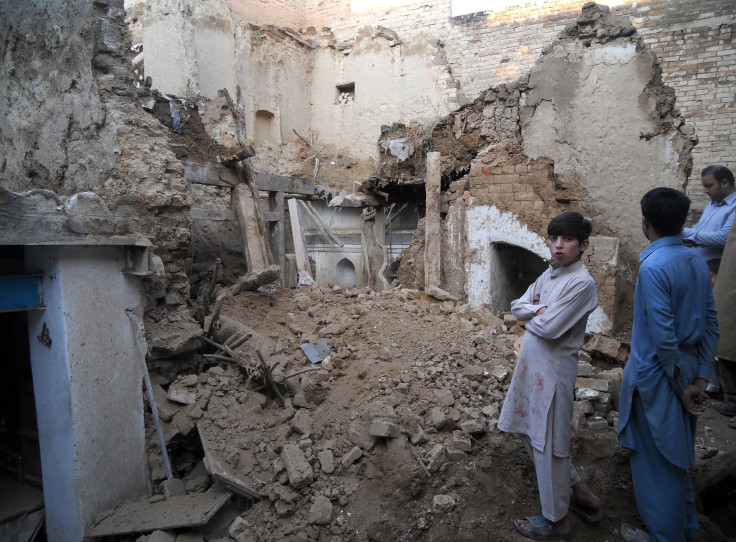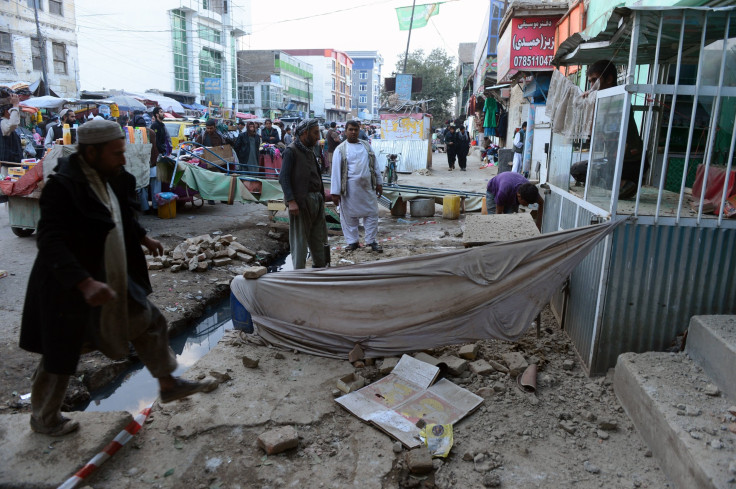Afghanistan Earthquake Update: Death Toll Crosses 300, Rescue Workers Scramble To Provide Aid In Pakistan And Afghanistan

Update: 3:01 a.m. EDT -- The death toll from Monday's 7.5 magnitude earthquake in Afghanistan, effects of which were felt severely in Pakistan as well, rose to 311 on Tuesday, the Guardian reported.
Pakistan, which is conducting search and rescue missions in the region since Monday, when the tremor struck, sent aircraft, road clearing teams and rescuers to remote regions in the country. Inayatullah Khnan, the minister for Pakistan’s worst-affected region of Khyber Pakhtunkhwa, said, according to the Guardian, that there was “bad news” from the region. “The district officers in those areas have informed me there were many villages and buildings that got totally destroyed,” he said, adding: “We are trying our best to utilize every facility we have and already have sent mobile ambulances carrying every facility of a hospital towards Upper Dir.”
Afghan officials said 74 people were killed across the country in the tremors while a report by the Associated Press, said, citing officials, that 237 people died in Pakistan.
Original story:
The death toll from Monday's 7.5 magnitude earthquake that rocked Afghanistan and Pakistan neared 300 Tuesday, as rescuers in the region scrambled to provide relief aid to the victims. Meanwhile, aftershocks and fear of more tremors continued to keep people outdoors despite near-freezing temperatures.
"Rescue work is ongoing, and tents, blankets and sleeping mats are being provided," Latif ur Rehman, a Pakistani disaster management official, told Reuters.
Monday's earthquake, which reportedly lasted a minute, was followed by seven aftershocks, some as strong as magnitude 4.8, Dawn, a local newspaper in Pakistan, reported, citing the United States Geological Survey (USGS). The latest aftershock came just before dawn on Tuesday, the report added. Tremors of the first earthquake were also felt in neighboring countries like India, Tajikstan, Kyrgyzstan and Uzbekistan.
According to a report by the Agence France-Presse (AFP), at least 277 people were reportedly killed in the quake so far, and officials expected the toll to rise as search and rescue missions continue. The tremors also led to landslides, building collapses and stampedes, adding to the mounting death toll and injuries. The maximum numbers of casualties were reported from Pakistan, with 228 people killed, according to Dawn. Over 1,800 people were also injured across the country.
In Afghanistan, officials put the death toll at 63 and said that hundreds more were injured in half a dozen provinces. While the government and aid agencies are trying to provide assistance to affected regions, AFP reported that areas like Badakhshan, where Jarm city, the epicenter of the quake, is located, are largely controlled by the Taliban, making it difficult to access.
"Today's earthquake was the strongest one felt in the recent decades," Abdullah Abdullah, Afghanistan's chief executive, said, according to AFP, adding: "Initial reports show a big loss of life and huge financial losses in Badakhshan, Takhar, Nangarhar, Kunar and other regions. Exact numbers are not known because phone lines are down and communication has been cut off in many areas."
In Taloqan, a town in the Takhar province in northeastern Afghanistan, 12 schoolgirls died in a stampede while trying to escape from a building, CNN reported, citing local police spokesman Abdul Khalil Asir.

"When the relatives of the dead students came to collect their bodies, they were so distressed that they could not even talk to authorities to record their names," Hafizullah Safai, head of Takhar's health department, told AFP.
The epicenter of Monday's major earthquake is just a few miles from the site of another earthquake in October 2005, which killed over 79,000 people and left 3 million people homeless. Over the last 15 years, nearly 120,000 people have reportedly died due to earthquakes in the region.
© Copyright IBTimes 2024. All rights reserved.






















